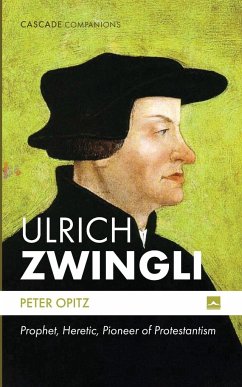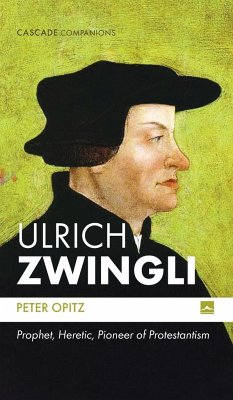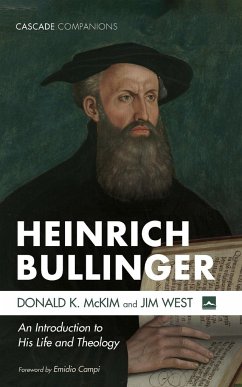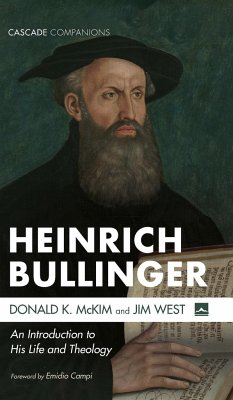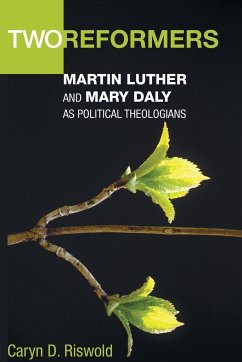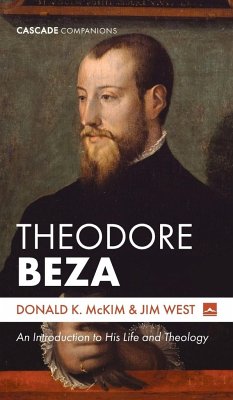Ulrich Zwingli can be regarded as the father of the Reformed Church and Reformed theology. He stands at the beginning of the Reformed confessional tradition, and many Reformers like Martin Bucer, Heinrich Bullinger, and John Calvin were heavily influenced by his views. Nevertheless, he is lesser known than Luther and Calvin. For one thing, many of his works are written in the Swiss German of the sixteenth century. Further, the time of his activity was short and marked by conflict. So his writings address specific questions that confronted him. He did not have time to develop his theological thought in peace or to write biblical commentaries. This book aims to lessen his relative anonymity by offering a short introduction to Zwingli's life and times and a concise summation of his basic theological ideas.
Hinweis: Dieser Artikel kann nur an eine deutsche Lieferadresse ausgeliefert werden.
Hinweis: Dieser Artikel kann nur an eine deutsche Lieferadresse ausgeliefert werden.

